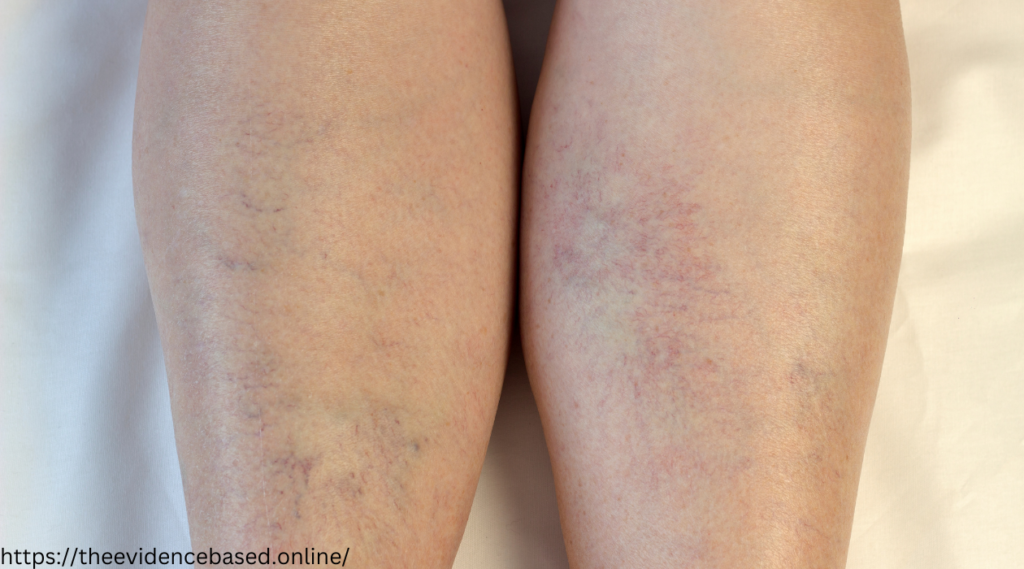Treatment for esophageal varices Chronic liver diseases, especially those progressing to cirrhosis, carry the risk of developing esophageal varices, which are abnormal, enlarged veins in the lower esophagus. This complication is particularly concerning because it can lead to severe internal bleeding if left untreated. For patients facing this diagnosis, understanding the full scope of treatment options is crucial. This comprehensive guide is designed to provide patients, health enthusiasts, and medical professionals with insights into the multifaceted approaches to managing and treating esophageal varices.

Esophageal varices emerge due to portal hypertension, a condition where blood flow in the portal vein system—a major conduit for blood from the digestive organs to the liver—is obstructed, forcing the blood into smaller vessels. The veins lining the esophagus become dilated over time, and the increased pressure within these blood-filled veins raises the specter of a potential rupture, leading to life-threatening bleeding. With these stakes in mind, we’ll explore a range of treatment modalities available. Read on to learn how interventions ranging from medical treatments to lifestyle changes can help mitigate symptoms and improve patient outcomes.
Medical Treatment Options
When it comes to medical interventions, the goal is to control and minimize the potential for bleeding by targeting the underlying causes and conditioning of esophageal varices. The following techniques are frequently employed in clinical settings:
Endoscopic Band Ligation
Endoscopic band ligation (EBL) involves placing small, tight bands around the varices, which causes the tissue to wither and fall off within several days. This technique is highly effective in reducing the size of varices and preventing bleeding. It’s minimally invasive and often requires only sedation, allowing patients to return to their usual activities shortly after the procedure.
Sclerotherapy
Sclerotherapy involves the injection of a solution directly into the varices, which causes them to clot and close off. This procedure is similar to EBL but is known to carry a higher risk of complications. However, for certain patients with varices that are unsuitable for banding, sclerotherapy remains a viable alternative.
Transjugular Intrahepatic Portosystemic Shunt (TIPS)
TIPS is a more invasive procedure reserved for patients with recurrent bleeding or those who are unresponsive to other treatments. It involves creating a shunt (passageway) within the liver to reduce pressure in the portal vein. While TIPS is highly effective at controlling variceal bleeding, it also comes with a higher risk profile and is typically considered when other options have been exhausted.
Medications
Several medications are used in the management of esophageal varices. Beta-blockers, for example, work by reducing the pressure within the portal vein and are commonly prescribed to prevent bleeding in patients with moderate to severe varices. Similarly, vasopressin and its synthetic analog, terlipressin, are used to constrict the blood vessels, reducing blood flow and hence the risk of bleeding.
Surgical Interventions
For patients with more advanced esophageal varices, surgical treatments may be the best course of action. These surgical options aim to redirect blood flow or entirely remove the distended veins.
Portacaval Shunt
A portacaval shunt is a surgically created connection between the portal vein and the vena cava, a major vein that carries deoxygenated blood from the lower body to the heart. By creating this direct pathway, the pressure in the portal vein and its branches (including the esophageal varices) is significantly decreased, lowering the risk of rupture and bleeding.
Splenorenal Shunt
A splenorenal shunt establishes a conduit between the splenic vein and the left renal vein, diverting blood away from the varices. This surgical technique can be highly effective in reducing the risk of bleeding, especially for patients who are not suitable for other types of surgery.
Esophageal Transection with Devascularization
Esophageal transection with devascularization is a complex surgical procedure that severs and ties off the veins leading to the varices, effectively reducing their size and pressure. It’s often performed in combination with other procedures, such as portocaval or splenorenal shunts, for comprehensive management of varices.

Lifestyle and Home Remedies & Treatment for esophageal varices
In addition to medical and surgical treatments, lifestyle changes and home remedies can play a substantive role in managing esophageal varices. Here are several approaches that patients can incorporate into their daily routines:
Dietary Changes
Adopting a low-sodium diet can help reduce fluid retention, a common issue in patients with liver diseases and associated conditions like esophageal varices. A diet rich in fruits, vegetables, and whole grains can also support overall health and well-being.
Managing Symptoms
Patients with esophageal varices may experience symptoms such as heartburn, which can be exacerbated by the condition. Over-the-counter antacids and acid suppressors, when used as directed, can help alleviate these symptoms.
Avoiding Alcohol and Certain Medications
Alcohol consumption can worsen liver health and exacerbate variceal bleeding risk. Patients with esophageal varices should also be cautious with medications, particularly those that can stress the liver or thin the blood, potentially increasing the risk of bleeding.
Alternative Therapies
While conventional medical and surgical treatments are the mainstay of esophageal varices management, some patients may seek out alternative or complementary therapies to supplement their care. It’s important to approach these therapies with caution and under the guidance of a healthcare professional.
Herbal Supplements
Certain herbal supplements, like silymarin (milk thistle extract), are purported to support liver function. It’s crucial to consult with medical professionals before starting any herbal regimen, as they can interact with prescribed medications or worsen the condition’s symptoms.
Acupuncture
Acupuncture, a component of traditional Chinese medicine, has been used to alleviate symptoms associated with liver disease. While some patients may find relief from symptoms like pain and nausea, the evidence supporting its effectiveness remains limited.
Yoga and Meditation
Stress management techniques, such as yoga and meditation, can assist patients in coping with the emotional and psychological challenges that come with the diagnosis and management of esophageal varices. These practices can contribute to an overall sense of well-being and may be therapeutic alongside traditional treatments.
Conclusion
Treatment for esophageal varices represents a serious complication of chronic liver diseases, mandating careful management and treatment. The wide array of treatment options discussed in this post underscores the importance of individualized care plans that consider the patient’s unique circumstances, health status, and preferences. Whether it’s through the adoption of certain lifestyle changes, rigorous medical supervision, or exploring adjunct therapies, the focus should always be on early detection, comprehensive support, and the best possible outcomes for patients facing this challenging condition.